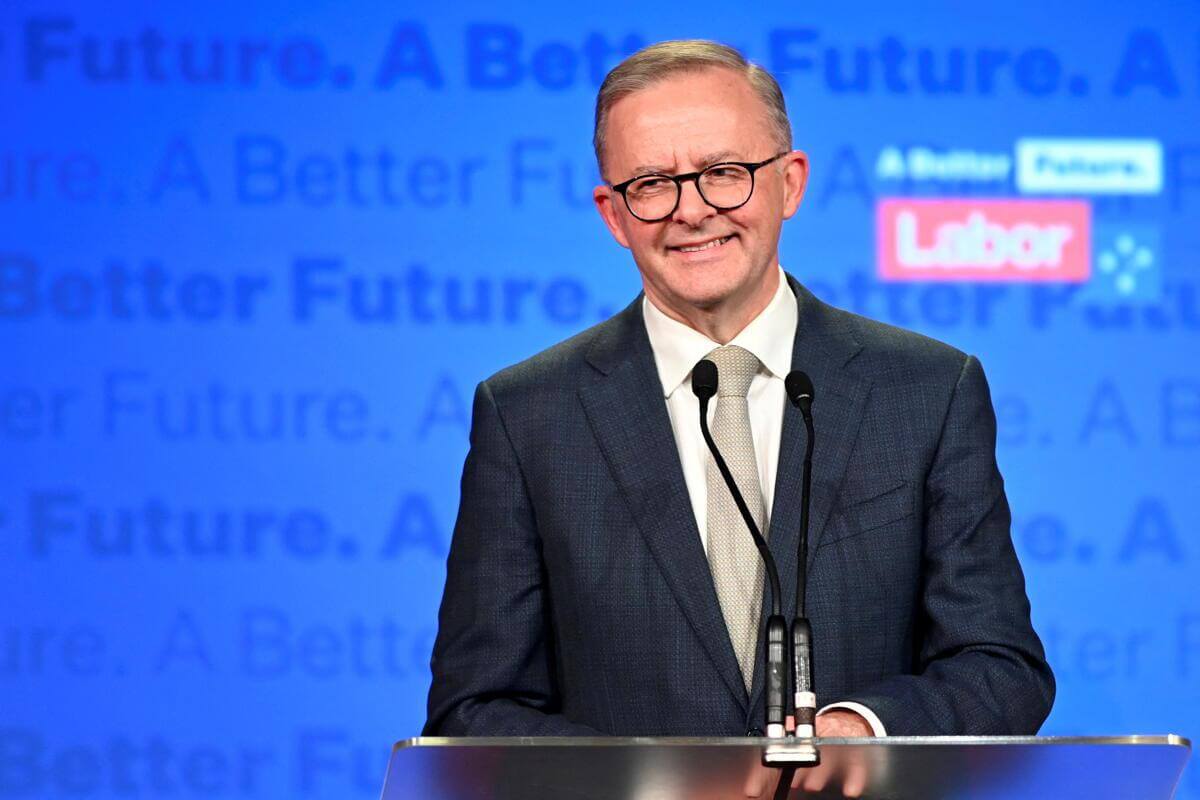Australian PM Anthony Albanese said that a face-to-face meeting with Chinese President Xi Jinping on the sidelines of the G20 summit in Bali next week is still a possibility.
Albanese, who leaves today for the East Asia summit in Cambodia and then flies to Indonesia, did not confirm the meeting, but said, “We’ll wait and see. I, of course, will be at the same summit as him [Xi Jinping] at the G20 being held in Indonesia.” The PM added that the “important summit… comes at a really difficult time for the global community.”
“We know that the economy is facing headwinds, we see global inflation rising as a result of Russia's illegal invasion,” he asserted.
A possible Albanese-Xi meeting in Bali next week would be the 1st between China’s paramount leader & Australia’s PM since 2016 (Turnbull).
— Bill Birtles (@billbirtles) November 8, 2022
Morrison in 2019 met China’s No.2 leader Li Keqiang.
Li may attend the other Asia summits, so an Albo-Li meeting instead… also possible 🫤 pic.twitter.com/0otXp24Wvj
Albanese’s comments come after he told reporters on Wednesday that dialogue with China “is a good thing.” He added that if a meeting is arranged with Xi, “then that would be a positive thing.”
The PM’s recent comments on the country’s relationship with China also come at the heels of Foreign Minister Penny Wong’s meeting with her Chinese counterpart Wang Yi on Tuesday.
Wong noted that both sides have “maintained effective communication and contact in recent times” and that with “unremitting efforts,” their ties had “witnessed positive changes.” She also pledged Australia’s continued adherence to the one-China policy and expressed hope to develop “more stable and mutually beneficial relations” with China.
Reuters has this from MOFA too: "Wang Yi told his Australian counterpart Penny Wong both China and Australia should gradually address each others' legitimate concerns and make positive contributions to address current global challenges during a call on Tuesday" 2/
— Stephen Dziedzic (@stephendziedzic) November 8, 2022
“A sound Australia-China relationship is not in contradiction with safeguarding national interests. Australia has no intention to amplify the differences between the two countries, and is ready to properly handle specific issues in a responsible manner within the framework of the Australia-China comprehensive strategic partnership,” she stated. She assured that Canberra would “make continuous efforts to improve and strengthen” ties.
Meanwhile, Wang agreed that their “common interests… far outweigh the differences.” He noted that an “easing and improvement” of their relations would serve their “fundamental interests,” as well as those of the international community. He called on both sides to “uphold the spirit of mutual respect, seek common ground while shelving differences, and strive for mutual benefit and win-win results,” which he stated would help “rebuild mutual trust.” Wang added that Beijing and Canberra would have to “gradually address (their) respective legitimate concerns.”
Commenting on the telephonic meeting, Chinese state-owned media house China Daily said that the downturn in the two countries’ trade and diplomatic relationship is due to Australia “insisting on seeing China as an adversary rather than a partner, and portraying China's development as a threat rather than an opportunity.”
In this regard, it remarked that the Wong-Wang meeting “reflects the great importance the two countries attach to their comprehensive strategic partnership.” It acknowledged that although ties had “run into difficulties in recent years,” which “led to a downturn in Chinese investment in Australia as well as increasing trading disputes between the two countries…some progress (had) been made to ease their strained relations” since Albanese came to power in May.
China and Australia have far more common interests than differences, State Councilor and Foreign Minister Wang Yi said in a phone call on Tue with Australian Foreign Minister Penny Wong. Both sides agreed to continue to make efforts to improve and strengthen bilateral relations. pic.twitter.com/SJgvhEIg8d
— Chinese Consulate-General in Melbourne (@ChineseCon_Mel) November 9, 2022
Chinese analysts suggested to Global Times, another state-owned news outlet, that Australia should “join hands in helping Pacific island countries in their fight against climate change, as well as disaster mitigation and relief.” It also noted that China greatly values its Australian imports of iron ore, coal, natural gas, agricultural products, seafood, and dairy products.
However, at the same time, they remarked that Canberra’s recent attempts to expand its defence budget, including acquiring nuclear submarines through the AUKUS deal, showed “increasing aggressiveness and echoing the United States’ anti-China strategy.”
Under the previous Morrison government, Australia described Beijing’s territorial claims in the South China Sea (SCS) as having “no legal basis”, criticised the National Security Law in Hong Kong and the treatment of Uighur Muslims in Xinjiang province, warned that China’s aggressions against Taiwan could result in warfare, elevated Australia’s relationship with India from a Strategic Partnership to a Comprehensive Strategic Partnership (CSP), participated in the Malabar naval exercises and leaders’ summits with the Quad, signed a defence pact with Japan, joined United States (US) warships in an attempt to steer Chinese vessels out of Malaysia’s Exclusive Economic Zone (EEZ), banned Huawei from the country’s 5G network, introduced a new law that allows the federal government to overrule any agreements reached between state agreements and foreign governments and entities, signed the AUKUS trilateral security arrangement with the US and the United Kingdom; and voiced firm opposition to increasing Chinese presence in the Pacific island region.
Many of these disputes have continued under the current Albanese administration. In fact, on Wednesday, Australian Defence Minister Richard Marles launched an urgent investigation into laws governing retired military personnel amid reports of former air force pilots being hired to train the Chinese military.

